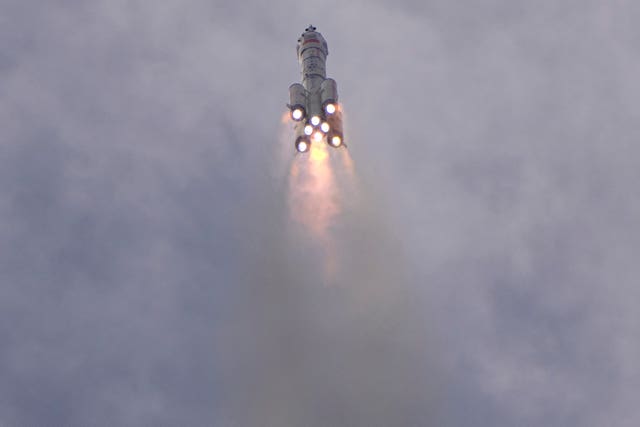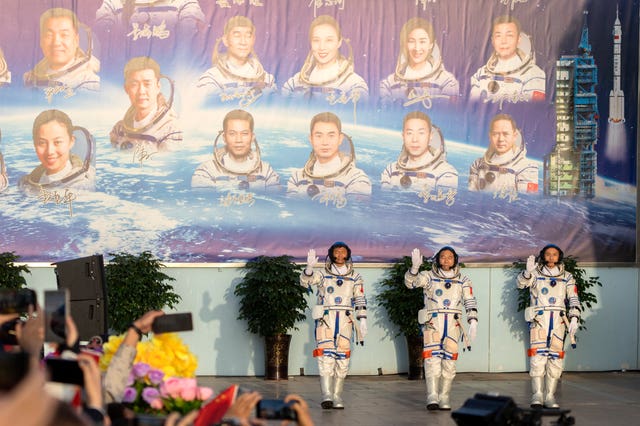
China launched a new three-person crew for its orbiting space station on Tuesday, with an eye to putting astronauts on the moon before the end of the decade.
The Shenzhou 16 spacecraft lifted off from the Jiuquan launch centre on the edge of the Gobi Desert in north-western China atop a Long March 2-F rocket.
The crew, including China’s first civilian astronaut, will overlap briefly with three now aboard the Tiangong station, who will then return to Earth after completing their six-month mission.
A third module was added to the station in November, and space programme officials on Monday said they have plans to expand it, along with launching a crewed mission to the moon before 2030.

China built its own space station after it was excluded from the International Space Station, largely due to US concerns over the Chinese space programme’s intimate ties with the People’s Liberation Army, the military branch of the ruling Communist Party.
China’s first manned space mission in 2003 made it the third country after the former Soviet Union and the US to put a person into space under its own resources.
On this latest mission, payload expert Gui Haichao, a professor at Beijing’s top aerospace research institute, will join mission commander Jing Haipeng, who is making his fourth flight to space, and spacecraft engineer Zhu Yangzhu.
The crew will stay aboard the station for about five months, during which they will conduct scientific experiments and regular maintenance.

The mission comes against the background of a rivalry with the US for reaching new milestones in space.
American spending, supply chains and capabilities are believed to give it a significant edge over China, at least for now.
China has broken out in some areas, however, bringing samples back from the lunar surface for the first time in decades and landing a rover on the less explored far side of the moon.
The US, meanwhile, aims to put astronauts back on the lunar surface by the end of 2025 as part of a renewed commitment to crewed missions, aided by private sector players such as SpaceX and Blue Origin.
The two countries have also separately landed rovers on Mars, and China plans to follow the US in landing a spacecraft on an asteroid.


Comments: Our rules
We want our comments to be a lively and valuable part of our community - a place where readers can debate and engage with the most important local issues. The ability to comment on our stories is a privilege, not a right, however, and that privilege may be withdrawn if it is abused or misused.
Please report any comments that break our rules.
Read the rules hereLast Updated:
Report this comment Cancel